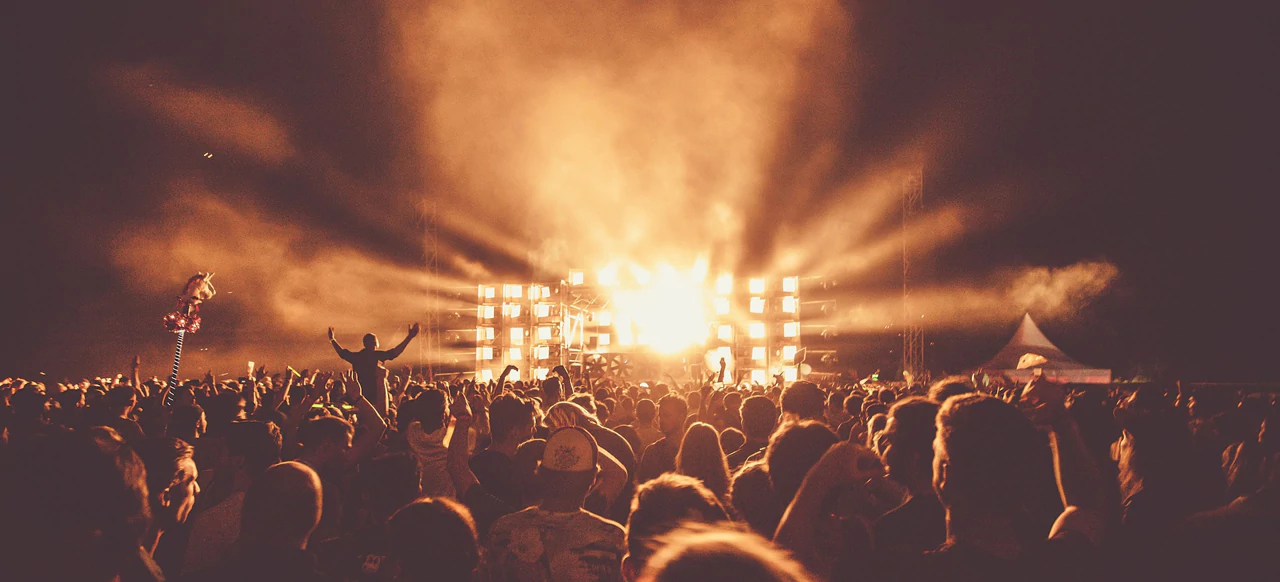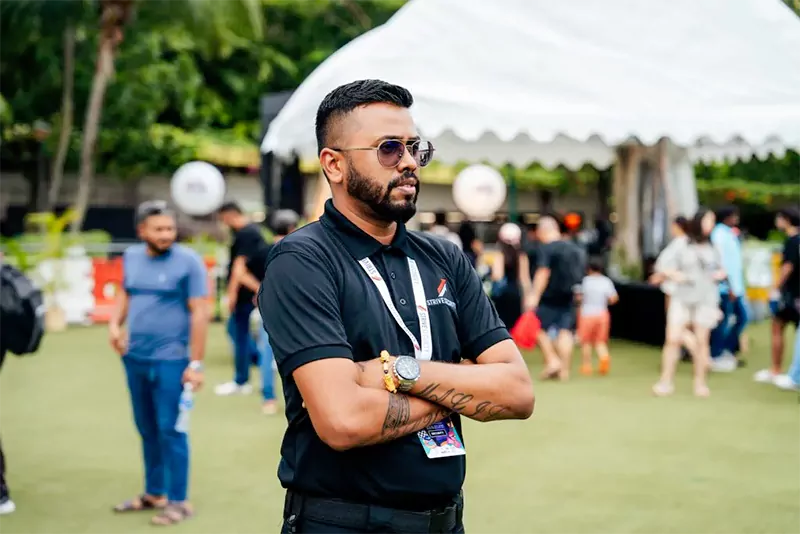A Guard Tour System (GTS) tracks security personnel as they move through the venue. It ensures that security staff are patrolling the right areas and provides updates in real time. This system is especially helpful for large events, helping security teams manage tasks and making sure no areas are missed.
Special Event Security: Planning, Management, and Best Practices


Planning and managing security for special events is very important. It helps to ensure the safety of guests, staff, and the smooth operation of the event. Whether it’s a corporate conference, a live concert, or a wedding, keeping order and reducing risks are key. This guide offers helpful tips for event planners and security teams to create a secure environment for all involved. It provides detailed advice on how to handle security challenges and use best practices.

What is Special Event Security?
Special event security includes measures and strategies to protect attendees, staff, assets, and the venue during an event. It combines physical security (such as personnel and barriers), electronic security (such as surveillance systems and access control), and emergency plans to ensure safety and smooth operations. Event security plans are tailored to fit the type of event, its location, expected attendance, and specific risks involved.
Which Events Require Special Security?
Special event security is needed for events with large crowds or high-profile figures. These events usually include:

Music festivals and concerts: These events often have large crowds and need crowd control and access management.

Corporate conferences: These events are often attended by VIPs, leaders, and dignitaries.

Sports events: Large events like the Super Bowl or Formula 1 races attract big crowds and have wide media coverage.

Weddings or private gatherings: For celebrities or corporate leaders, extra privacy and security are necessary.

Sports events: Large events like the Super Bowl or Formula 1 races attract big crowds and have wide media coverage.
Special event security helps reduce risks at these events, ensuring the safety of both attendees and organizers.
Why Special Event Security is Essential
Special event security is important for several reasons:
- Crowd Management: Large crowds increase the chance of accidents, stampedes, or fights. Effective security ensures smooth crowd flow and stops overcrowding.
- Preventing Threats: Events may attract people with bad intentions, including protesters, thieves, or even terrorists. Specially trained security can detect and stop potential threats.
- Emergency Preparedness: If an emergency happens, like a fire, medical issue, or natural disaster, a good security plan ensures quick and organized action.
- Legal and Insurance Requirements: Organizers often need to follow safety laws for attendees. Good security also lowers liability risks and makes sure the event is covered by insurance.
Key Duties and Responsibilities of Special Event Security
The main duties of special event security include:
- Crowd Control: Keeping the crowd calm and avoiding disruptions or accidents.
- Access Control: Managing who enters restricted or VIP areas to prevent unauthorized access.
- Monitoring Surveillance: Using CCTV cameras to spot suspicious activity or security breaches.
- Emergency Response: Acting quickly in emergencies like first aid, evacuation, or handling fires.
- Patrolling: Security guards regularly patrol the venue to keep all areas safe.
- Collaboration with Local Authorities: Working with law enforcement and emergency services to provide complete security coverage.
Risk Assessment and Planning
Risk assessment is the base of any event security plan. Event planners must find potential risks, check how serious they are, and make plans to reduce them. This includes factors like:
- Event size and scope: Larger events with more people need more staff and resources.
- Venue characteristics: Some venues, like large outdoor spaces or multi-story buildings, need extra care for crowd control and access management.
- Event profile: Events with VIPs, celebrities, or controversial topics might attract protests or unwanted attention.
Once the risks are found, a security plan is created that covers staffing, equipment, procedures, and emergency responses.
Risk Assessment and Planning
Having enough trained security personnel is crucial. The number of staff needed depends on the size of the event, the layout of the venue, and the event’s nature. Security staff should be trained in:
- Crowd control
- Emergency response drills
- Conflict resolution
- First aid and medical training
Security staff should be easy to spot, approachable, and capable of handling security issues calmly and effectively.

Use Technology to Beef Up Your Security
Technology can improve security by providing real-time monitoring and better access control.
Closed-circuit television (CCTV) is important for keeping an eye on large events. With cameras placed around the venue, security teams can quickly spot threats or unusual activity. CCTV can also record footage that can be checked later if something happens, which provides helpful evidence.
Metal Detectors and Bag Scanners
At events with higher security risks, metal detectors and bag scanners are used to stop weapons, explosives, or banned items from entering. These devices help screen people quickly without causing long delays.
Guard Tour System

Challenges in Special Event Security
Despite careful planning, some challenges may arise during special event security:
- Crowd dynamics: Large crowds can be unpredictable, which makes it hard to control their movements or deal with problems.
- Weather conditions: Bad weather can make it harder to control crowds and increase the risk of accidents.
- Unexpected threats: Security teams must be ready for issues like protests, terrorist attacks, or natural disasters, all of which require quick reactions and teamwork.
Best Practices for Ensuring Special Event Security
To improve special event security, follow these best practices:
- Pre-event briefing: Security staff should be briefed on risks, the event schedule, and emergency procedures before the event starts.
- Clear communication channels: Make sure all security staff have access to easy communication tools, like two-way radios, to coordinate efforts.
- Frequent drills and exercises: Regularly practice emergency drills so everyone knows what to do during an incident.
- Visible security presence: Having security staff in key places helps deter crime and reassures attendees that they are safe.

Improving Safety with the JWM Guard Tour System
One of the best ways to improve security at an event is by using the Guard Tour System. The JWM Guard Tour System has many benefits:
- Efficient staff monitoring: It helps organizers track security staff’s movements and ensures that all areas are covered.
- Real-time updates: Security teams get immediate alerts if an area is left unsupervised or if something suspicious happens.
- Data analysis: The system stores data that can be used to improve security for future events.
Adding the JWM Guard Tour System to your event security plan makes operations smoother, speeds up response times, and ensures that every part of your event is carefully monitored.
Conclusion
Effective planning and management of special event security require risk assessments, proper staffing, use of technology, and proactive crowd control. By preparing early and using modern security technologies such as CCTV, metal detectors, and the Guard Tour System, event planners can create a safe environment for everyone. Good security management helps the event run smoothly, prevents potential problems, and ensures a positive experience for all participants.
Share:
Table of Contents
Try JWM Guard Tour System
We offer the most appropriate security solutions for users around the world. Any problem, contact us!
Contact Us NowMeet Your Security Needs Today
